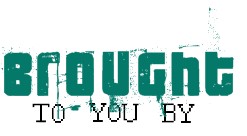Examining the masculinity of the newest God of War
 Note: The author originally wrote this feature for Pixel Jizz; a gaming culture publication for California’s Bay Area Queer community, and has been given permission to publish it on to Press Pause Radio as well. You can obtain the latest issue from Comikake this upcoming September.
Note: The author originally wrote this feature for Pixel Jizz; a gaming culture publication for California’s Bay Area Queer community, and has been given permission to publish it on to Press Pause Radio as well. You can obtain the latest issue from Comikake this upcoming September.
 nder the creative direction of Cory Balrog, Santa Monica Studio was able to deliver a radical reimagining for the God of War series that not only changed some of the most fundamental gameplay dynamics of the series, but it also managed to re-characterize its protagonist into something more than a bland cipher for juvenile aggression. While there’s no denying the quality of the franchise and what it did for the character-action genre of video games, the heart of the property was ultimately nothing more than a navel-gazing male power-fantasy that embellished upon all the token signs of toxic masculinity to an obnoxiously troubling degree. There are plenty of reasons to celebrate the newest God of War title, but my favorite reason has to be the fact that it finally redeemed its hero with something far more meaningful than revenge porn, and I couldn’t be happier with the effect it’ll have on male culture as a whole.
nder the creative direction of Cory Balrog, Santa Monica Studio was able to deliver a radical reimagining for the God of War series that not only changed some of the most fundamental gameplay dynamics of the series, but it also managed to re-characterize its protagonist into something more than a bland cipher for juvenile aggression. While there’s no denying the quality of the franchise and what it did for the character-action genre of video games, the heart of the property was ultimately nothing more than a navel-gazing male power-fantasy that embellished upon all the token signs of toxic masculinity to an obnoxiously troubling degree. There are plenty of reasons to celebrate the newest God of War title, but my favorite reason has to be the fact that it finally redeemed its hero with something far more meaningful than revenge porn, and I couldn’t be happier with the effect it’ll have on male culture as a whole.
The PlayStation 4 exclusive sets out to establish a whole new depth of personality to the Ghost of Sparta that isn’t simply centered on a vengeful ax to grind, or even him being just a doting father either. Kratos is now a man who has cast aside his machismo, hubris, and certain points, even his staunch contempt for everyone around him. In the last thirteen years prior, rage has been the only emotion that Kratos has ever bothered to validate in his prime, viewing the anxiety, trauma, and despair that he experienced as a weakness, a view that’s commonly enforced in alpha-male culture.
The warrior’s origins have always been steeped in elitism—In Kratos’ eyes, he was a Spartan who could do no wrong, and considered himself to be a mortal that was far too good for the cleanup duty he was assigned to by the Gods above him. Even when his blinded pride had cost him the only people that he felt any personal attachment to, he chose to perceive the transgression as an assault on his “manhood,” fueling upon his hatred to drive him in fulfilling his crusade against Aries. This is just one of the many tones that would set the status quo for God of War before the 2018 release, as the series struggled with progressing its killer champion as a sympathetic hero because of the “manly” chip on his shoulder that he carried.

Flash forward to the opening hours of the eponymously named sequel where we are treated to a different man; a former killer gone huntsman, who desired nothing more than to live quietly in the wild with the family he fostered, until he was forced to deal with the tragic loss of his wife and mother of his son. With the Matriarch of their unit gone, Kratos could no longer be the emotionally despondent provider that he had previously regulated himself to; he gradually understood that he needed to change—a maturity that the man never bothered to had to have before. Setting out into the woods with his boy, the excursion brought them into a scuffle that he was not expecting—the challenge of setting an example. After a dangerous encounter with a troll had shown him the misplaced aggression of his son’s anger, who continually ravaged the remains of monster’s corpse well after its defeat in frustration; it was an opportunity for the Spartan to nurture the hatred that his son’s violent actions into something that he knew all too well—but he didn’t. No, instead decided to put a stop to it, and decided to delay the pilgrimage they had initially pledged to honor their shared loss.
 Push came to shove, however, when a mysterious brute came pounding at Kratos’s doorstep, provoking an altercation with the God Killer on his turf, and what came after may have been the most development the character has seen in a decade. After being assaulted repeatedly, the Spartan chose to restrain himself from physically responding, he simply stood his ground, and assertively asked him to leave in peace, and find conflict elsewhere. The same man who wouldn’t have batted an eye at gouging out the eyes of someone who remotely looked in his direction in a menacing way was now, had now opted for the high road after already taking a few coldcocks to the dome—the sight
Push came to shove, however, when a mysterious brute came pounding at Kratos’s doorstep, provoking an altercation with the God Killer on his turf, and what came after may have been the most development the character has seen in a decade. After being assaulted repeatedly, the Spartan chose to restrain himself from physically responding, he simply stood his ground, and assertively asked him to leave in peace, and find conflict elsewhere. The same man who wouldn’t have batted an eye at gouging out the eyes of someone who remotely looked in his direction in a menacing way was now, had now opted for the high road after already taking a few coldcocks to the dome—the sight
was nothing short of refreshing.
It should go without saying that emotional discipline is not, and will never be a quality that’s gender-dependent, but the aggressive tropes of the typical male-led fantasy adventure has historically empathized force over reflection—because anything else would risk giving a negative view of the hero’s “manhood,” the main element that’s used to represent the strength of the character. Despite his civil protest, the Nordic assailant had upped the ante, sending the retired Olympian flying dozens of feet into the air, but even as he came crashing back down into the ground, the Spartan had taken it upon himself to hold his own, and stave back his killer intent. Even after his opponent had boasted about his invulnerability, and drove the trademark warrior against the ropes, Kratos stayed his hand as best he could until he was ostensibly forced to retaliate with a more drastic measure to bring the mysterious foe down, the dude did everything he could to take the high road in that scuffle. The exchange may seem like an innocuous conflict to move the plot at first sight, but it’s really a watershed moment for Kratos’ character. There was no longer an ego to prove, or a vendetta to carry in his eyes—not because he was a shell of his former self, but quite the opposite—those things are simply beneath him now, and this Impression only became more and more apparent as the game went on.
Admittedly, there were still plenty of growing pains for Kratos, and his son Atreus to endure in their upcoming journey, but just seeing this much already from the once stone-cold hero, in so little time already set the best precedent of what to expect in the next generation of God of War titles. Kratos’ personal development may not be all that altruistic at first sure, but genuine growth often isn’t—what started as a realization that he needed to be a better father, soon developed into him trying to be a better person—which is a theme that I think most modern men have gradually begun to embrace in the real world. It’s only natural that this awareness would be desired out of the media we consume, and by that stretch, God of War for the PlayStation 4 has proven to me that it’s already ahead of the curve.

From Bond, Indiana Jones, John McClane, and countless other iconic male action heroes all share a number of troubling traits, but there’s one element that’s fairly consistent with the lot of them—they subliminally influence every guy watching them into believing that they’re the male standard of the pecking order. Not to say that Modern Pop Culture is was the first to pioneer toxic masculinity in fiction, but Hollywood certainly played a large role in propagating it in modern media for decades, and the everlasting result has instigated a years-long pissing contest over the definition of what a real man is with males at large. This couldn’t be any more true with the previous generations of Kratos’ outing, they all embraced themes of chauvinism, sexual objectification, and male entitlement, and used them to define the Ghost of Sparta in a way that blurred the lines between sympathetic anti-hero, and an offensively boring creep. I honestly thought this reboot would just be “War Daddy with Vikings” but I was pliantly surprised at the amount of depth and care that went into the redemption of Kratos, and the role that he fills as a character.
Video games are the last choice of moral direction that anyone should rely upon honestly, but that doesn’t excuse the medium from trying to set an example, let alone doing better. There might be a handful of y’all out there thinking that I’m just the biggest soy boy to have an opinion about a video game that you’ve seen yet but the truth of the matter is that Kratos used to be the biggest C.H.A.D. around. Here’s to Cory and the rest of the folks at Santa Monica Studios for recognizing that, and choosing to something about it with their latest release.





 GeorgieBoysAXE
GeorgieBoysAXE




